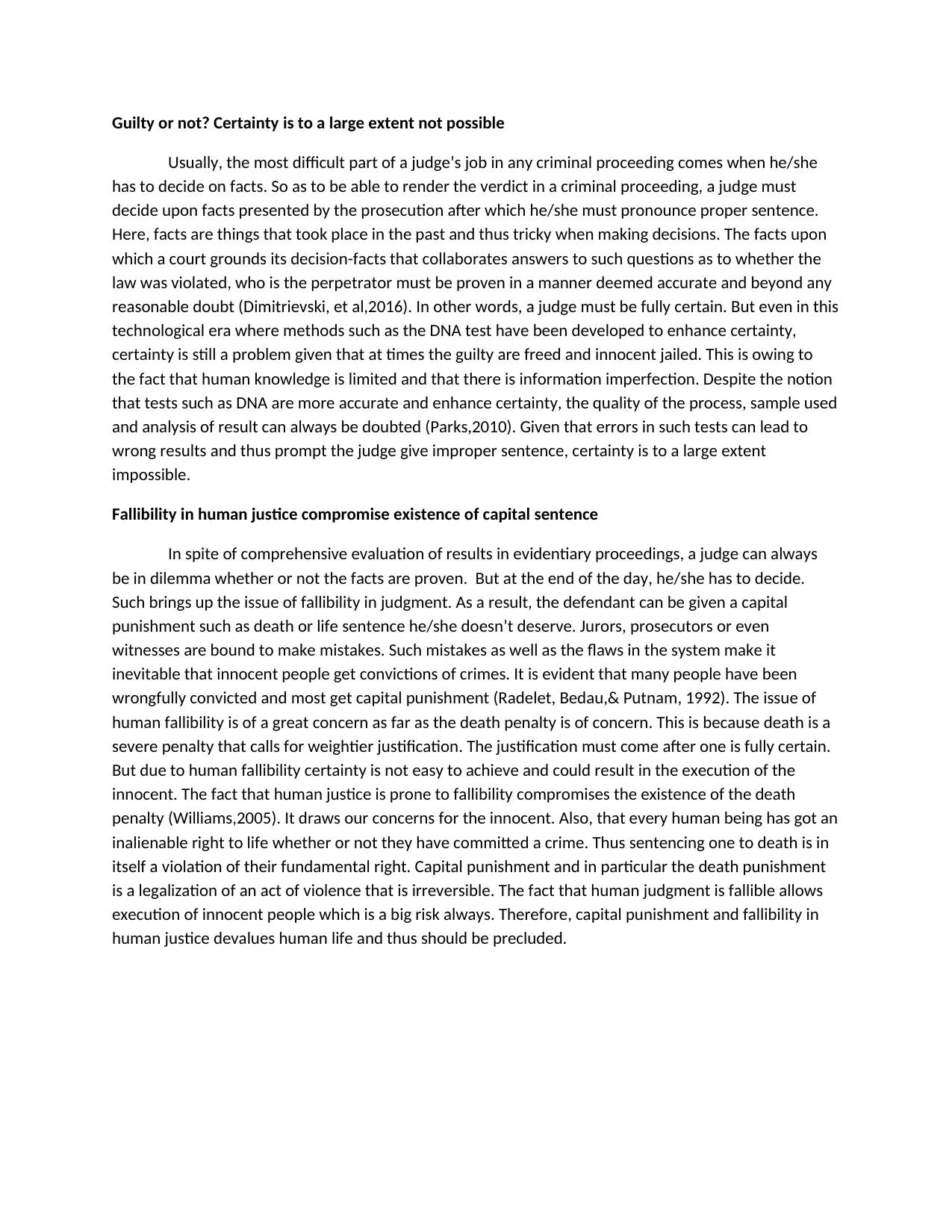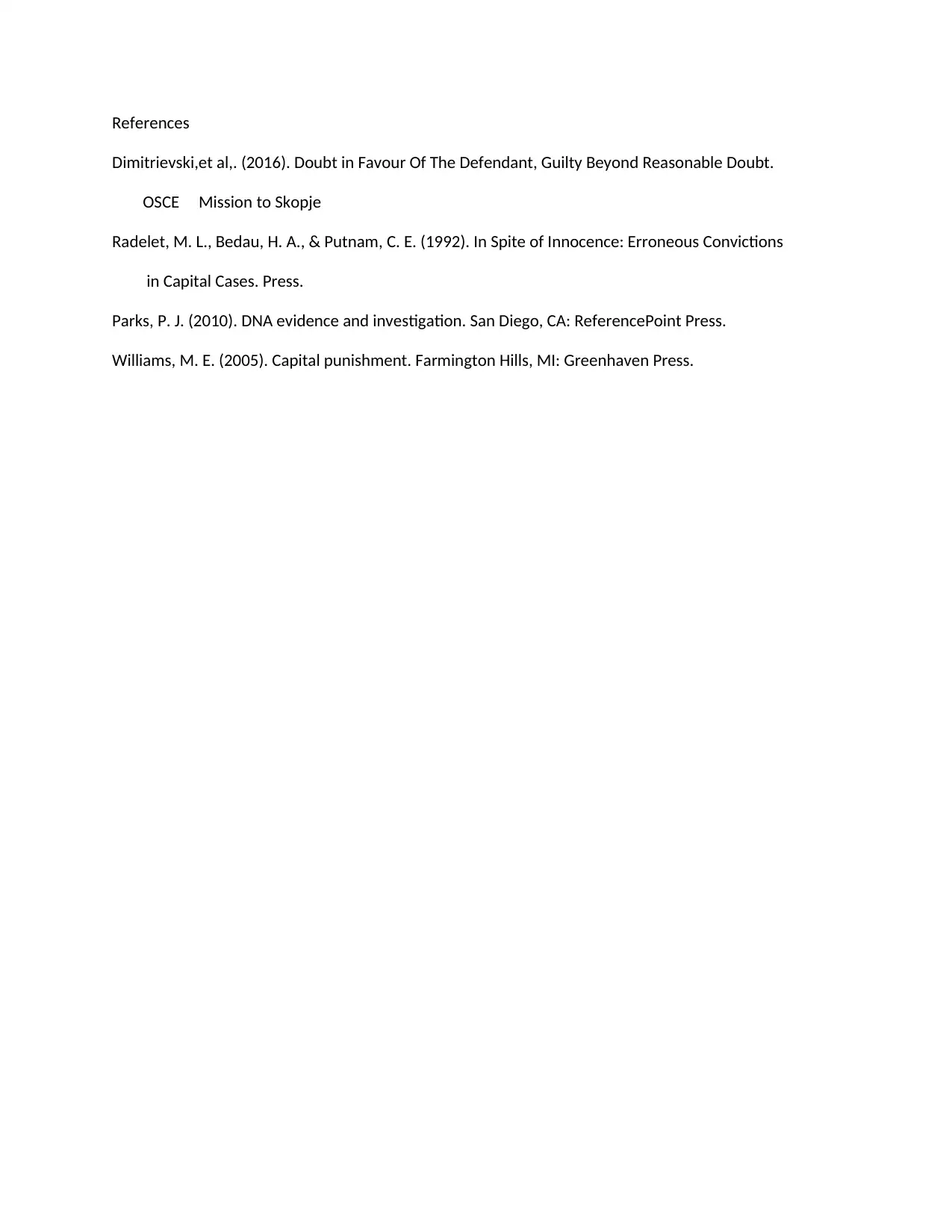Fallibility in Human Justice: An Analysis of the Death Sentence
VerifiedAdded on 2023/06/11
|3
|703
|177
Essay
AI Summary
This essay explores the inherent fallibility within the human justice system and its profound implications for the application of the death sentence. It argues that the impossibility of achieving absolute certainty in legal proceedings, compounded by the potential for errors from jurors, prosecutors, and witnesses, inevitably leads to wrongful convictions and the risk of executing innocent individuals. The essay highlights the ethical concerns surrounding capital punishment, particularly the violation of the fundamental right to life and the irreversible nature of executions. Ultimately, it concludes that the fallibility of human judgment undermines the validity of the death penalty, advocating for its abolishment to protect innocent lives and uphold the value of human life.
1 out of 3








![[object Object]](/_next/static/media/star-bottom.7253800d.svg)